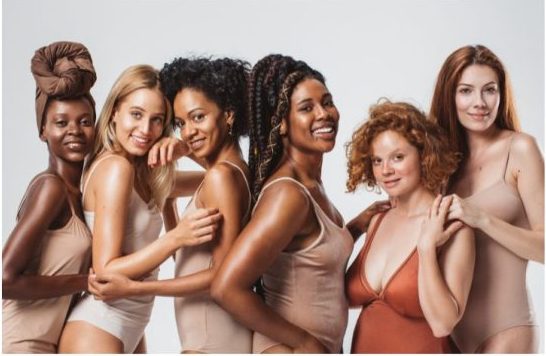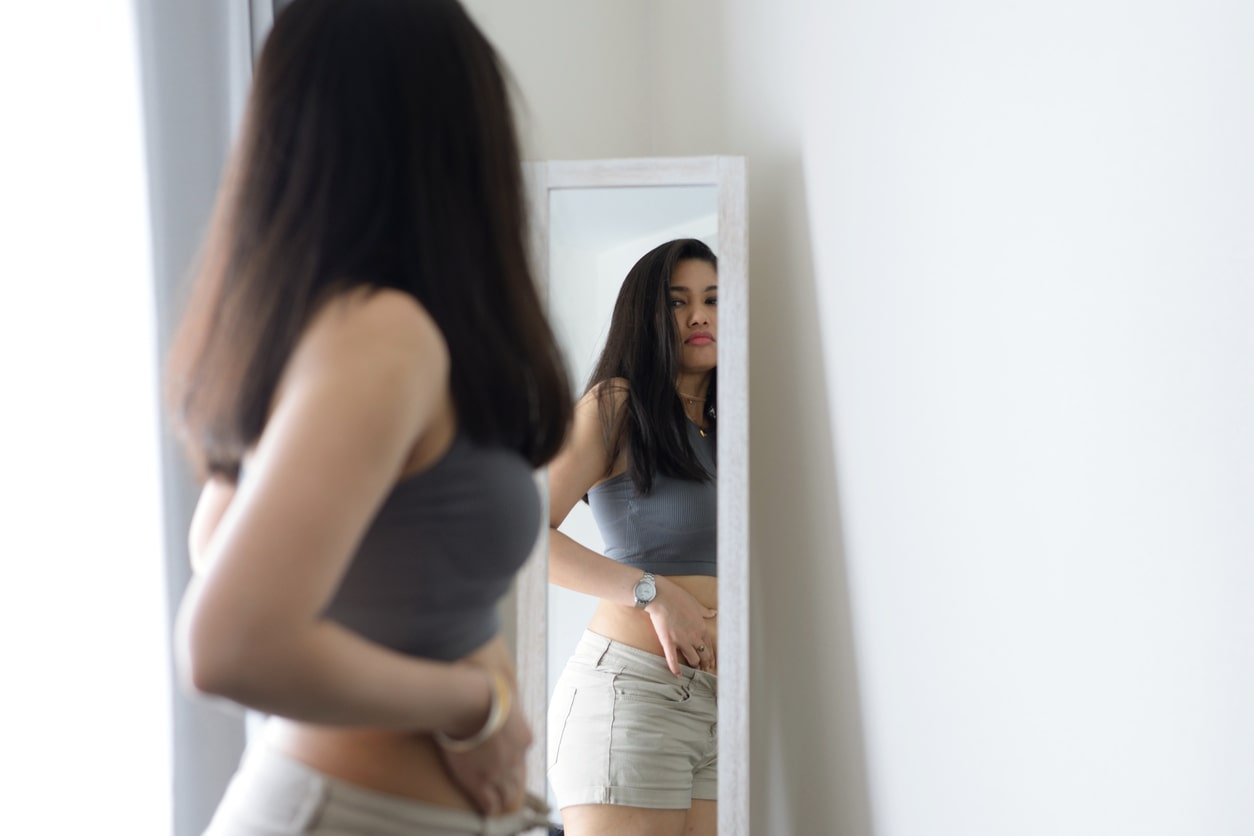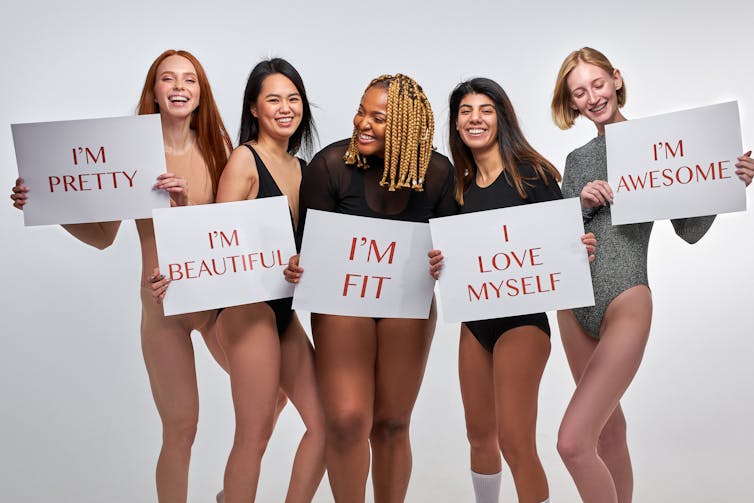
Listen, Understand, and Respect It!
Posted on |
Your body is a special and dependable friend, an amazing tool that helps you go through every stage of life. The body positivity movement emphasizes the importance of promoting acceptance and appreciation of all body types, highlighting its significance in today’s society. It has unique rhythms, requirements, and strengths that no one else possesses. However, because daily life moves so quickly, we frequently ignore the small but crucial cues that our bodies are attempting to us. We can easily forget that our bodies are always communicating with us and directing us toward what we need to feel our best, whether that means disregarding discomfort, pushing through exhaustion, or neglecting self-care. We need to slow down, pay attention, and change the way we interact with ourselves. We can cultivate a closer relationship with our health and well-being by paying close attention to our bodies and respecting their cues.
Listening to Your Body
Being aware of the emotional and physical cues your body gives you is part of listening to it. It involves observing how your body feels and mindfully and carefully attending to its requirements. When you pay attention, you start to pick up on the tiny cues your body is giving you, whether they be discomfort, fluctuations in energy, or mood swings. Taking a long breath can help you connect with your body and understand its needs, contrasting the pressures of societal expectations and numerical goals.
Recognizing Signs: Your body uses a variety of methods to communicate with you, most frequently through emotional or physical cues. You could need more sleep or rest if you’re feeling exhausted. Stress can be informing you that it’s time to take a break or engage in relaxation techniques, while sluggishness might indicate that you need to eat or drink more water. You can better respond to your body’s immediate requirements if you can recognize these signs.
Action: It’s critical to act upon these indicators as soon as you notice them. Give yourself permission to sleep or relax if you’re exhausted. Think about changing your diet or increasing your physical exercise if you’re feeling lethargic. Stress may necessitate deep breathing exercises, mindfulness exercises, or just taking a short break from work. Balance and well-being are enhanced when you take deliberate action in response to your body’s signals.
Understanding Your Body
Personal Observations
Paying close attention to how various foods, workouts, or habits make you feel is the first step toward understanding your body. Observe how your body reacts to different forms of exercise or how your energy changes after consuming particular foods. Take note of how your mood swings during the day or how your sleep habits impact your general well-being and productivity. You can begin to recognize what supports your body and what could require adjustment by being aware of these relationships.
Learning Over Time
The process of understanding your body is a journey that spans your whole life. It involves learning from your experiences and fine-tuning your habits as you discover what works best for you. Your energy levels, mood, sleep quality, and physical stamina can all fluctuate over time, and understanding these shifts requires continuous observation and adaptation. It’s a journey of trial and error, finding what optimizes your well-being and learning from what doesn’t.
No Rush
It’s critical to keep in mind that body awareness is not a race. It’s a continuous process that changes as your needs do. You don’t have to rush or feel under pressure to sort everything out at once. You can progressively gain a better understanding of your body and form routines that promote your particular health and vitality with perseverance and self-compassion.
Understanding Body Image
Body image is a multifaceted concept that encompasses how we perceive, think, and feel about our bodies. It goes beyond mere physical appearance to include our body’s functions, sensations, and expressions. Cultivating a positive body image is crucial for our overall well-being, as it significantly impacts our mental health, self-esteem, and relationships. When we have a healthy perception of our bodies, we are more likely to treat ourselves with kindness and respect, fostering a sense of self-worth and confidence.
The Importance of Body Positivity
Body positivity is a powerful movement that champions the acceptance and appreciation of all bodies, regardless of their shape, size, or appearance. It encourages us to shift our focus from perceived flaws to our body’s strengths and abilities. By embracing a body-positive mindset, we can enhance our mental health, reduce body dissatisfaction, and develop a more compassionate relationship with ourselves. This movement reminds us that everybody is unique and worthy of love and respect, promoting a sense of inclusivity and self-acceptance.
Respecting Your Body
Honor Body’s Cues Without Judgment


Recognizing and accepting your body’s needs without condemnation or shame is a sign of respect. It’s critical to pay attention and react compassionately, whether they are requesting extra care during stressful or uncomfortable times or indicating that they need to rest after a long day. Because our bodies are not robots, they require time to heal, refuel, and regenerate. Respecting these signals is essential to preserving general well-being.
Compassion for Positive Body Image


It’s important to practice self-compassion, particularly when you’re not feeling your best. When we need a break or don’t live up to our standards, it’s tempting to be hard on ourselves. However, self-compassion practice helps you deal with these situations with understanding and patience. A more balanced relationship with your body is fostered by acknowledging that it’s acceptable to have bad days and giving yourself grace during them. This promotes emotional and mental well-being.
Intuitive Eating and Healthy Choices


Respecting your body also entails giving it wholesome food, drinking plenty of water, and exercising when it feels good for you. Finding activities you enjoy, whether it’s yoga, walking, dancing, or any kind of exercise, improves your physical health and emotional well-being, and choosing meals that fuel and feed your body helps you feel your best. You can support your body’s long-term health and vitality by making decisions that honor its demands.
Creating a Supportive Environment
Creating a supportive environment is vital for nurturing a positive body image. Here are some practical steps to achieve this:
Surround Yourself with Positivity


Engage with people who promote body acceptance and self-love. Their support can reinforce your journey towards a positive body image.
Engage in Enjoyable Activities


Participate in activities that make you feel good about your body, such as yoga, dance, or sports. These activities can enhance your physical and emotional well-being.
Practice Self-Care and Self-Compassion


Take long breaths, enjoy food without guilt, and listen to your body’s cues. These practices help you connect with and appreciate your body.
Avoid Negative Self-Talk


Replace criticism with affirmations that focus on your body’s strengths and abilities. This shift in mindset can significantly improve your self-esteem.
Promote Body Positivity Daily


Incorporate intuitive eating, engage in physical activities that bring you joy, and use positive affirmations to reinforce a healthy body image.
Conclusion
Listening, understanding, and respecting your body are essential practices for achieving overall well-being. When you tune in to your body’s signals, learn what it truly needs, and respond with kindness and care, you foster a deeper connection to yourself and promote lasting health. This process of self-discovery is not just about physical wellness—it’s about cultivating a compassionate relationship with yourself, acknowledging your unique needs, and honoring your journey. Embrace this ongoing journey with patience, celebrate your progress, and remember that by listening to your body, you are investing in a life of balance, vitality, and true self-care.